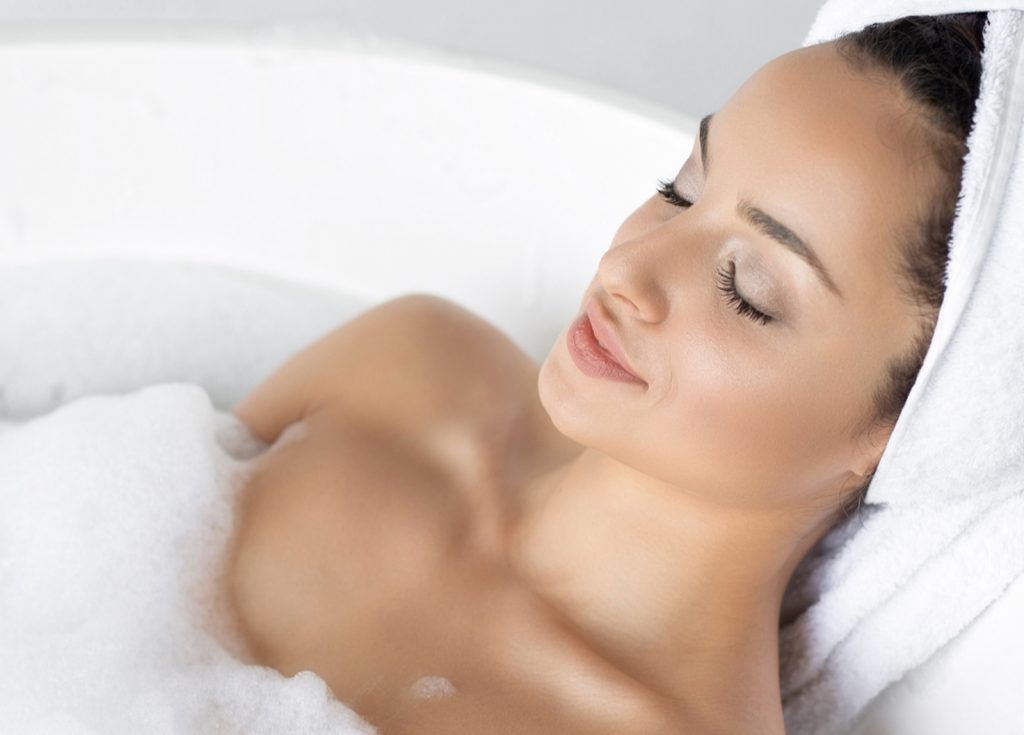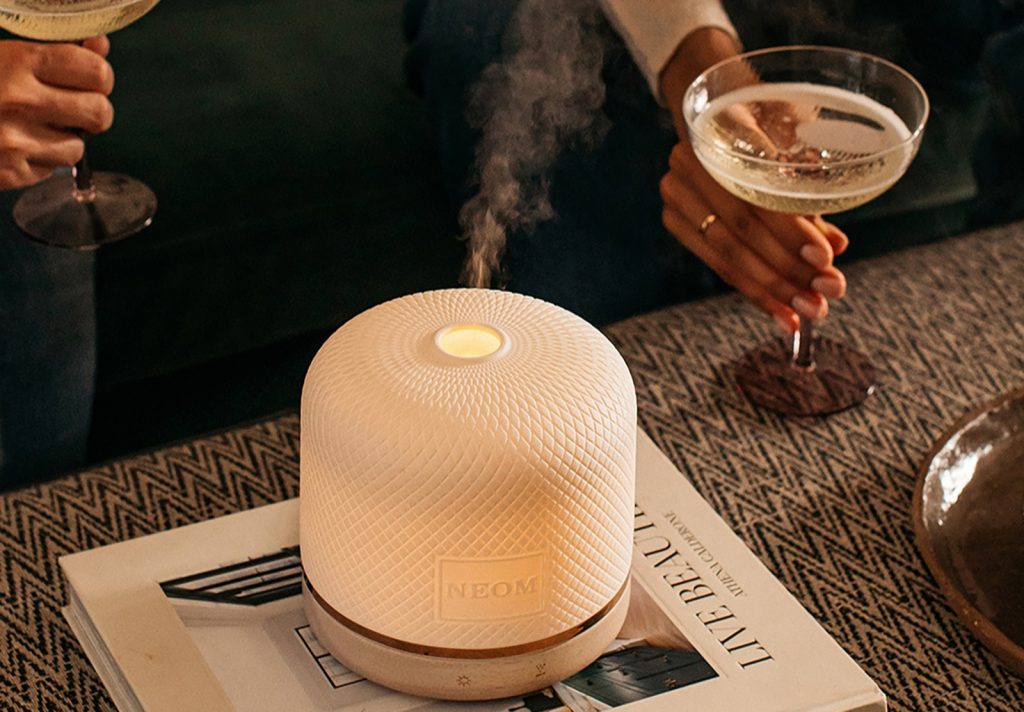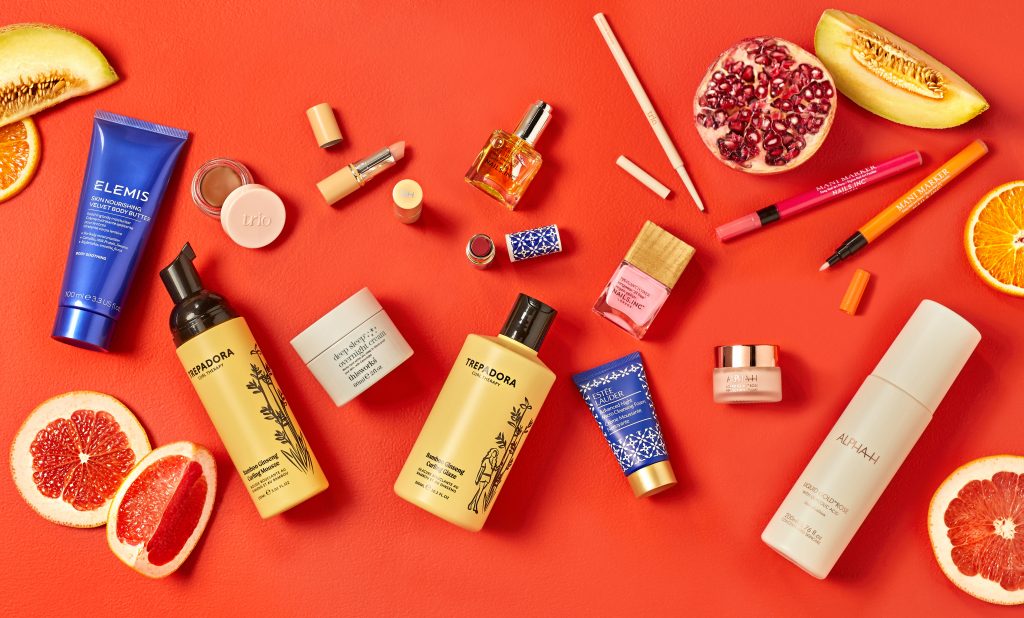Ever been baffled by terminology in a magazine article or ingredients list? Tripped over topical applications or been stumped by silicones? We’ve got the solution: a cheat sheet of beauty buzzwords to ensure you know what’s in your products and what techniques to use, so you can get the most out of them.
Parabens
Parabens are a type of preservative system, which are medically approved for food, cosmetic and medicinal use. In recent years parabens have faced a backlash with some beauty lovers who prefer products without artificial preservatives, but they do ensure a long shelf life and stability. Like the sound of going paraben-free? Kickstart your new beauty routine with bestselling REN and Caudalie.
Humectants
Think humid, think humectant – these substances draw moisture to the surface of your skin and reduce moisture loss. Hyaluronic acid is an excellent humectant to keep skin looking soft and supple – we love Pestle & Mortar’s Hyaluronic Serum for adding lightweight hydration to parched skin.
Silicones
If your moisturiser, primer or foundation claims to create a smooth effect on your skin, chances are it contains a form of silicone. Excellent at blurring over pores, fine lines and other imperfections, silicone also gives ‘slip’ to your skin and creates a flattering finish, so you can add other products on top with ease. Benefit’s iconic Porefessional Primer is great for smoothing and mattifying, but if you’re after a silicone-free formula, Emani Vegan Cosmetics Perfect 10 Primer Serum will give your complexion a fresh, dewy glow.
Micro-dermabrasion
A form of exfoliation, this procedure manually lifts off dead skin cells with a combination of fine crystals and a vacuum. Typically achieved at a beautician’s clinic, sessions can be costly, but you can achieve similar results at home using products that combine the power of both chemical and physical exfoliants, like Judith Williams Retinol Science Peeling Mask. Or, if you’re looking for regular yet powerful exfoliation, try Elemis Superfood Blackcurrant Jellly Exfoliator.
Sulphates
Sulphates are the ingredient that traditionally give toothpaste, shampoo and facial wash that sudsy, soapy texture – sodium lauryl sulphate is the most common of these. While sulphates are useful for removing excess oil and giving us that satisfying, squeaky clean feeling, they can cause irritation for some, and even exacerbate sensitivity. And there’s definitely no compromise on quality – Living Proof is a sulphate-free hair brand that results in clean, silky hair every time, while if you’re looking for sulphate-free skincare, REN is a high quality, luxe-feeling range.
Dehydration
Unlike dryness, which is a skin type caused by a lack of oil content and is generally based on genetics, dehydration is a skin concern caused by a lack of water due to varying factors like harsh weather, dietary changes or even your hormonal cycle. Characterised by surface lines, increased sensitivity and dullness, the best way to reclaim your glow is adding a splash of hyaluronic acid into the mix. We love the Pestle & Mortar Pure Hyaluronic Serum, as the gentle formula will suit all skin types, while the hyaluronic acid binds and retains water molecules to create a plump, radiant look – like your skin has got its spark back.
Natural
We’ll be straight with you here: the term ‘natural’ does not mean that much. While vegan, cruelty-free and organic claims have to be supported with a certificate, products that state they are natural, or inspired by nature, carry no legal weight. Often the phrase will be used to imply a formula is free from nasties, or uses certain ingredients, but if you’re serious about what goes into your products, always check the INCI (ingredients) list – and remember that even 100% organic, cold-pressed, gluten-free formulations could still cause an allergic reaction – it all depends on your individual skin type.
Topical application
This term is often used when a product needs to be used in certain areas, like under the eyes or on the décolleté. For treatments like blemish creams, or anything with a high acid content like glycolic, salicylic or vitamin C, make sure you heed the advice on the label, and only apply where instructed.
Non-comedogenic
If a beauty product is labelled as non-comedogenic, it means it is formulated to not clog your pores. As every complexion is different, it’s worth not taking this term as gospel – if you have oily skin with larger pores, you’re more likely to experience clogged pores due to your glands producing more sebum, trapping dirt and excess oil to create blackheads and whiteheads. However, non-comedogenic products are typically oil-free, so if you’re more prone to shine and imperfections, these could be useful to add to your beauty routine.




